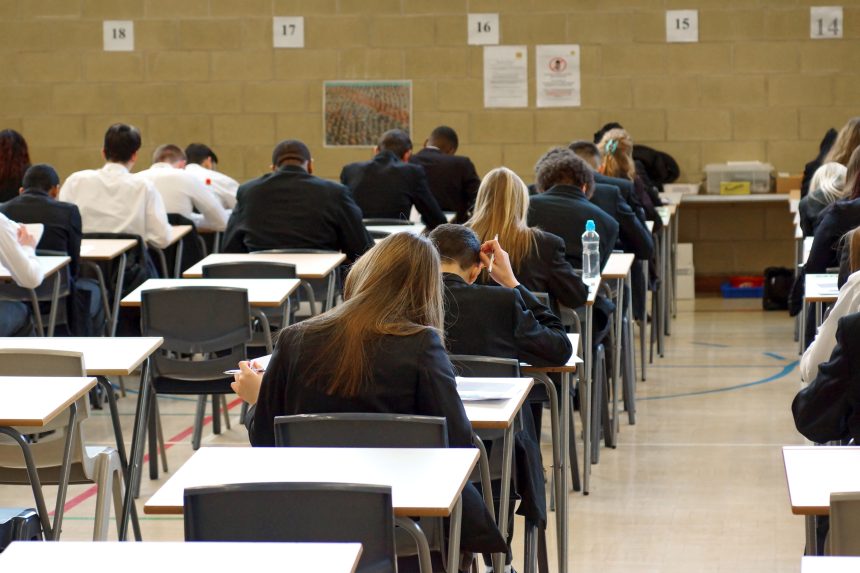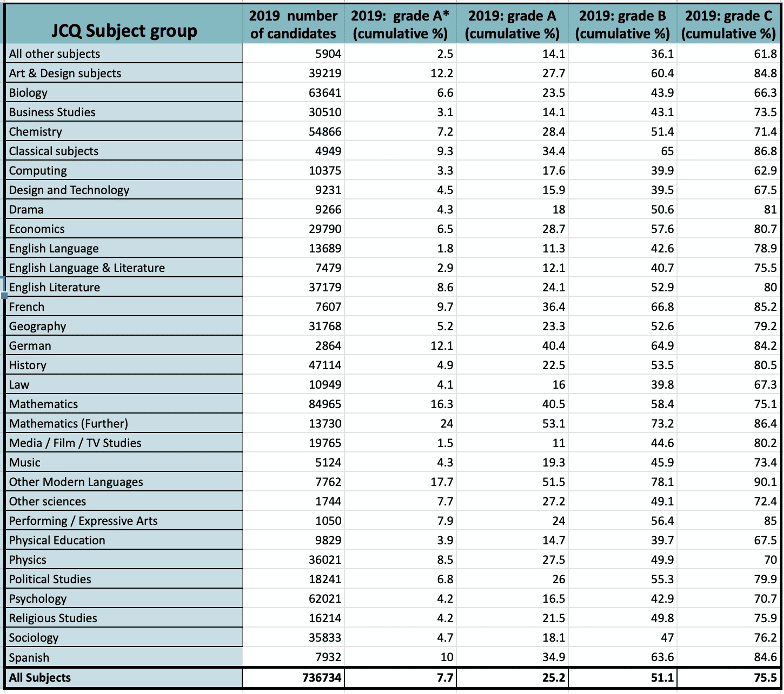Contents:
Your child may have just started their first term of Year 11, but it will soon be time to begin thinking about the next step in their education. They can apply to as many sixth forms or colleges as they like; the possibilities are endless. But how can you and your child narrow down the options? And how can you best support your child with one of their biggest decisions yet?
Your role as a parent is to help your child gather all the information they can about the options available to them, so that they can make an informed decision. It’s important to offer support, but equally important that your child feels in charge of the decision-making process.
This article will help you to navigate the maze of options available to your child. You can use it to determine which factors are most important to consider when making your decision together, and to help you weigh up the pros and cons of any sixth form or college you’re considering.
Your child wants to stay at their current school
Your child may have already set their heart on staying at their current school and, for some students, this is a good option.
Sixth form is a mere two years and some students may take a while to settle into a new environment. The anxiety of a new place, teachers they don’t know, and the stress of making new friends could detract from their studies. For some, familiarity is preferable, allowing them to focus on their studies from the very start.
However, it’s important that your child doesn’t make this decision solely because it’s the easiest or because their best friend is staying. Here are some factors to consider when making your decision:
- Results − What are the school’s results like for the subjects they intend to study? Their school might top the league tables for Maths, but if your child wants to study English Literature and the English department is underperforming, then you may want to consider other options.
- Teachers − It’s important to find out which teachers will be teaching your child. Whilst they may love their current biology teacher (which is why they’ve decided to pursue the subject at A Level), a different teacher may teach them in sixth form. If you know their teaching style didn’t work for your child in the past, this could hinder their performance.
- Entry Requirements − What are the entry requirements for the sixth form or college and will they safely get in? It’s important to know the exact grades your child needs to pursue their chosen A Level subjects. If they are on the borderline, it may be a wise decision to pick a backup option; they don’t want to be left high and dry on results day.
It’s also a good idea to look at a few other alternatives, even if it’s only to consolidate their decision. You and your child can do this by looking at other sixth form’s prospectuses or heading to an open day.

Factors to consider when picking a sixth form or college
Maybe their current school doesn’t have a sixth form, or perhaps they think a fresh start in a new environment is preferable. Here are some possible aspects to consider while searching for the perfect place for your child.
Sixth form vs college
A sixth form is connected to a school, while a college is an institution solely specialising in further education. Although the services they offer are broadly the same, they often have different approaches to the way in which they support students, both academically and pastorally. Which one is most suitable depends entirely on your child and what kind of environment they feel they will do best in at this stage of their life.
Colleges are usually bigger than sixth forms and have a more hands-off approach to learning. Students are encouraged to take responsibility for their own education and there is often less supervision.
A college environment would best suit students who enjoy working independently and relish their freedom. Moreover, the hands-off approach that colleges take may better prepare students for university, where contact hours are minimal, and success depends on a student’s ability to organise and motivate themselves, and on their capacity for independent study.
Not all students suit this approach so early in their academic journey. If your child requires closer supervision in their studies and does better with a more fixed support structure around them, then a sixth form may be a more appropriate option. Sixth forms are often smaller than colleges and some students do better in this more intimate setting.
The social environment is something that should be taken into account when choosing a sixth form or college. If your child is a social butterfly and enjoys an ever-changing set of faces, then a college environment will likely be ideal. If, on the other hand, your child is more introverted, the smaller, more intimate environment of a sixth form may be preferable.
Is one type of institution ultimately better than the other? Not really − it all depends on your child’s character and on what conditions suit them the most.

Subjects
Does the sixth form or college offer all the A Levels your child wants to study and can they timetable their subjects in?
This sounds like an obvious one, but what happens if your child is set on a place that doesn’t offer one of the subjects they have picked for their A Levels? Or maybe the centre’s timetabling decisions mean two of their subjects will clash.
In this instance, your child is faced with a tricky decision. Should they substitute their dream subject for one they are less passionate about, so that they can attend their first-choice institution? Or is it better to pursue their academic interests at a sixth form or college that caters to their needs, even if the place doesn’t feel as good a fit for them?
Location
How far away is the college or sixth form from your home and how will your child get there?
The journey time may look achievable on Google Maps, however, it’s always a good idea to have your child try out the journey there and back themselves to determine whether or not it will be feasible on a daily basis. It’s especially useful to do this at the times they’re most likely to be travelling so that they can get an idea of traffic, frequency of public transport, and overall busyness; if they’re unlikely to get a seat on the bus or train, the journey will feel a lot longer!
Travelling is tiring and can be stressful, so this is an important factor to take into consideration.
Results
The weighting you put on the importance of the centre’s results may depend entirely upon your child’s ambitions beyond sixth form. If your child’s academic future relies upon high A Level results, then you may consider a centre’s results table to be one of the most important factors when narrowing down your choices. Here are some ways in which you can assess a centre’s results.
Average A Level results
The quickest way of determining which sixth forms or colleges should be shortlisted is by comparing their average A Level results to what your child is aiming for. If they need all As, then it’s not advisable for them to go to a centre where the average A Level results are a C. Hoping your child will outperform the average is a high-risk strategy.
The government provides a tool allowing individuals to access A Level results data for different institutions. You can, for example, find out the mean grade achieved by A Level students in a particular year.

How do they compare to the national average?
Many centres publish their results on their website; these are usually found in either the prospectus or a results section. If they are difficult to find or non-existent, this could be a red flag.
Results will usually be in the form of a table. You will often find that a centre’s performance is broken down into the percentage of students who have achieved certain grades. Typical examples are the percentage of pupils who have achieved an A*/A, A*−B, and a grade C or above. The centre will have an overall percentage which can be compared to the national average (see the bottom of the table below).
Results by subject
Some centres may also give a more detailed breakdown of their results, showing results by subject. This will enable you to get a better idea of the performance of certain departments. If you can’t find this breakdown on a centre’s website, you can email and ask for one.
Below is the Joint Council for Qualifications results table for A Levels, published by Ofqual in 2020, which shows the percentage of students who achieved each grade or above, broken down by subject. You can compare this table to that of the sixth forms or colleges you are considering.

Ofqual August 2020: Results table for GCSEs and A Levels in 2019.
In addition to the above, Ofqual have also published a more detailed breakdown of A*/A achievement.
Extracurricular and pastoral considerations
While academic results are important, your child’s wellbeing should be a major factor in the decision-making process.
Sixth form or college isn’t just a place for further education; it’s also a place where your child will develop psychologically, socially, and emotionally, and as such should be a supportive, accepting environment.
Extracurricular activities
The sixth form or college should provide opportunities for students to develop and explore their passions.
Extracurricular activities may also play a leading role in your child’s personal statement if they choose to go into Higher Education. Universities accept students not only on the basis of their academic abilities, but also on the assumption that they will contribute to university life. The personal statement is a space where students can provide evidence of their engagement with hobbies, sports, or their community, and show that they are a well-rounded individual.
Thus, it is important that a sixth form or college offers a wide range of extracurricular activities for your child to explore − not only for their fulfilment and development, but also for university admission success.
Extracurricular activities a sixth form or college may offer:
-
- Sport
-
- Music
-
- Extended Project Qualification
- Clubs e.g. chess, debating, art
Facilities
A Level timetables are dramatically different from KS3 or KS4 timetables. Sixth form students have free periods and this time should (for the most part) be used for independent study.
Your child will be more motivated to study during these periods if there is a well-equipped environment to support their learning.
It’s a good idea to find out what facilities the centre provides for independent study. Is there a library? How well stocked is it? Is there a sixth form study area? Will your child have access to computers? If not, it’s likely they will need their own laptop.

Pastoral support
For some centres, pastoral support may be seen as separate from academic support, whereas other centres see them as combined.
Either way, good pastoral care relies on information sharing between staff. It will identify any problems students are having straight away, with support strategies put in place to assist them. Equally, the system will also ensure that students who are on track and settled are still supervised.
Assessing the effectiveness of a centre’s pastoral support system can be difficult. Some places will advertise themselves as supportive environments with watertight pastoral support structures, but current students may tell you otherwise.
The amount of contact your child will have with staff members is a good indicator of the effectiveness of a centre’s support system. Your child’s primary form of contact will be their form tutor and teachers. Small tutor groups and class sizes allow tutors and teachers to get to know their students better, and as a result, students may feel safer sharing any problems. Additional staff add to this support network and may include counsellors or learning support staff.
Other signs of good pastoral support may include mentoring from older students and teacher-student meetings to track and assess progress. If the latter is in place, it is more likely that any academic difficulties a student may encounter will be identified and dealt with promptly.
Support with university admissions
It may feel early to begin thinking about university when your child is only just choosing their sixth form. However, if your child knows that the next step in their academic journey is going to be Higher Education, then it’s important to consider how they will be supported throughout the admissions process. This is especially important if your child has aspirations of getting into Oxbridge or a course requiring specialist preparation for an entry exam.
You can ask a sixth form or college how they support students in the following areas:
- Personal statement writing
- Entrance exam support e.g. UCAT, BMAT, PAT, MAT, NGAA, STEP
- Interview Preparation
Past performance, in terms of students receiving university offers, is a good indicator of how well a centre is able to support students with their applications. If getting into Oxbridge or a Russell Group university, or onto a selective course such as medicine or engineering is something your child is aiming for, then finding out how many past students have achieved this is useful.
If the information isn’t on the centre’s website, don’t be afraid to email and ask.

SEND
If your child has a special educational need or disability (SEND), then it’s important to find out exactly how a centre will support them, both academically and pastorally.
Some centres are far more geared up towards supporting SEND students than others. They may have specialist staff to provide additional academic support, specialist equipment for students to access, or the capacity to carry out assessments.
You may also want to find out how your child’s needs will be accommodated in lessons.
If your child has a physical disability, you may want to consider the size of the campus and the ease at which your child will be able to move around. Once you and your child have narrowed down a shortlist, you may be able to contact a centre and get special dispensation to look around and see how accessible the facilities are and if they are suitable for your child.
Miscellaneous
If you’ve got to this stage and can’t decide between two places, then the following could help sway your decision towards one or the other.
Exam boards
Your child has picked the subjects they want to study, but do you know which exam board is taught for each subject, and does it really matter?
Broadly speaking, no. All exam boards should have the same standards as they are all overseen by Ofqual, the regulatory body for examinations. However, there are subtle differences.
Some focus more heavily on learning content, whereas others focus more on application of theory. You can research different exam boards and see which would better suit your child’s learning style. For example, this article compares Biology exam boards.
Additionally, some exam boards are less popular than others. This can make finding suitable resources to support your child’s learning more challenging. There may be fewer online resources, fewer textbooks, and if you’re thinking about supplementing your child’s learning with private tutors or revision courses, these can be harder to find.
Choosing a sixth form or college can often feel like an impossible feat as there are so many factors to consider and places to choose from.
However, we hope this has helped you get some idea of the sorts of things you can compare when looking at centres and how to weigh up your options.
Everyone is different and what suits one child may not suit another. It’s important to consider your child’s character, their aspirations, and the environment which will best suit them.
One final bit of advice: always trust your gut.







Comments